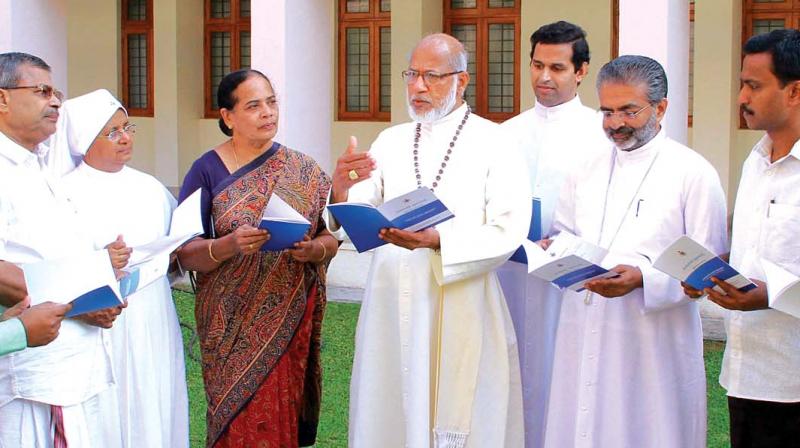Church in Kerala embraces simplicity
The church warns its faithful against profligacy and called on its members at all levels to return to the simplicity.

Kochi: Pope Francis’ disarming simplicity has finally cast its halo on the Syro-Malabar church, one of the most conservative constituents of the Holy See. The pastoral document the Kerala-based church released on the eve of the silver jubilee celebrations of its becoming a major archiepiscopal church has warned against profligacy and called on its members at all levels to return to “the simplicity which the Bible advocated”.
Noting that Pope Francis has brought in a change in the church’s worldview on every aspect, the document said that Catholic families have been influenced by the economical and technological developments. “The results of these influences go against the traditional teachings of the church,” the document, signed by church’s head Major Archbishop Cardinal George Alenchery on January 6, said. “The faithful should denounce this culture of consumerism and return to the simplicity that marked the life of Jesus Christ.”
The 32-page document named Onnayi Munnott (together, ahead) delved mainly on three topics -- simplicity in life, family as a witness and the mission of emigrants – which were taken up for discussion at the fourth pastoral synod of the church, held from August 25 to 28 last year. It also listed a 54-point action plan to ensure that the suggestions are implemented on the ground.
Reflecting the new thought process Pope Francis is trying to push forward in the church, document called upon its members “to go beyond the law of the land and ensure the judicious distribution of wealth.” The faithful should differentiate among what is absolutely necessary, comfortable, luxurious in nature and luxury, and return to society what is not required for a reasonably comfortable life “as there are more elements than under one’s control that resulted in one’s earning,” it said.
The document warned against the new-found practice of organising parish-level feasts and suggested that they be held at the family level instead.
While it was liberal in its economic content, the document held on to the church’s traditional teachings on concepts such human life and family as non-negotiable. It warned the faithful against the tendency of going in for civil marriages and co-living before marriage and said the priests should shun bureaucratic approach towards the requirements of the laity and ensure that women get equal opportunities as men do.
The document, which called on the need to extend the services to the emigrant population ‘which is in the second or the third generation,” also called for a unified approach on the contentious issue of liturgy.
The plan of action to give effect to the proposals contained in the document included earmarking a percentage of seats in educational institutions and in hospitals for the poor and making admissions and appointments in educational institutions transparent and legal.

